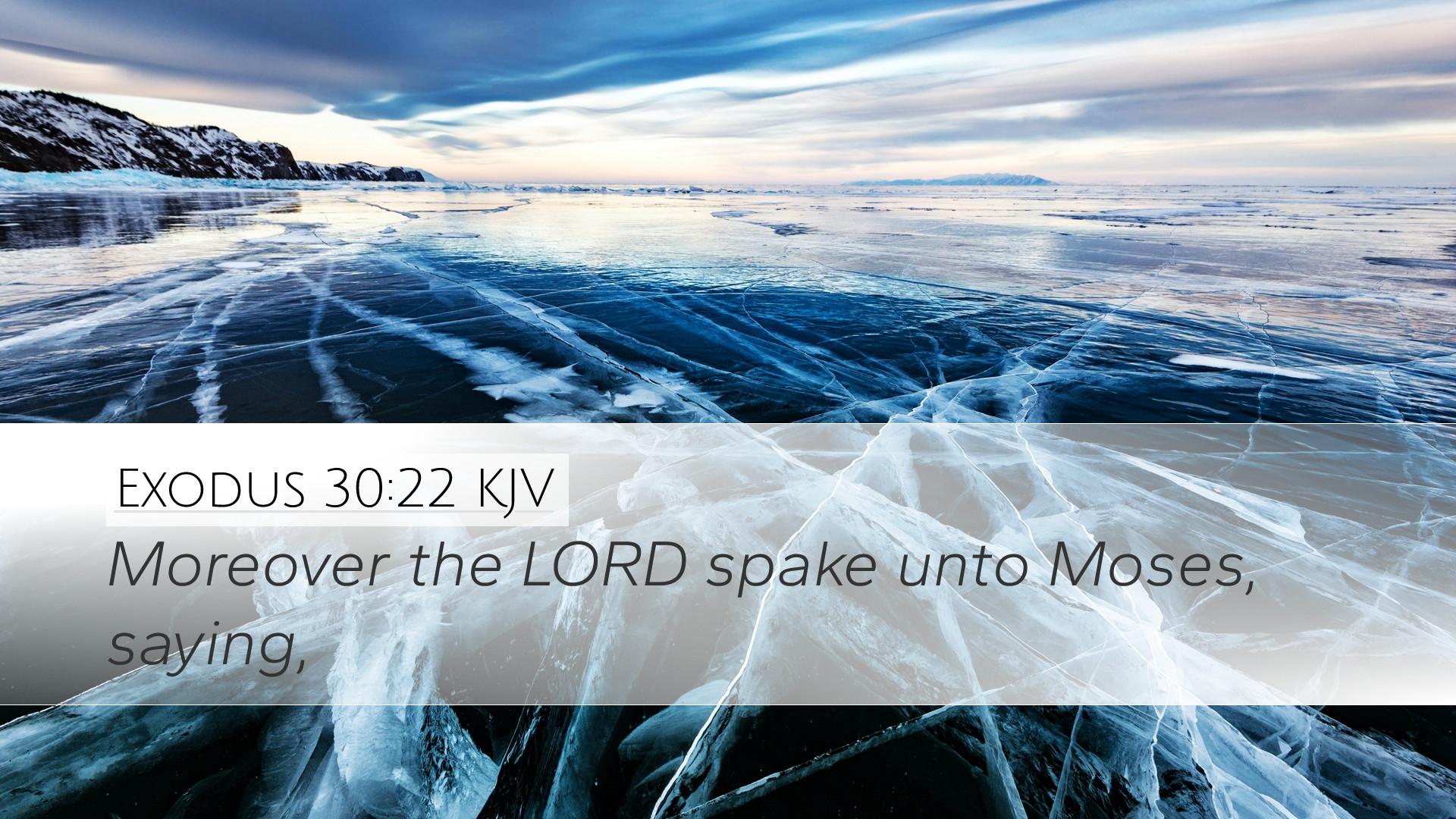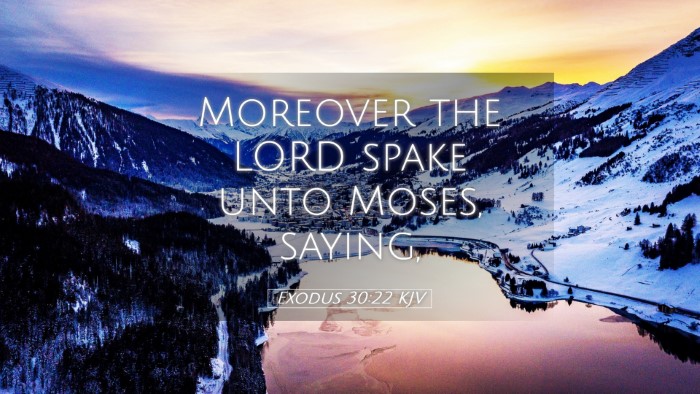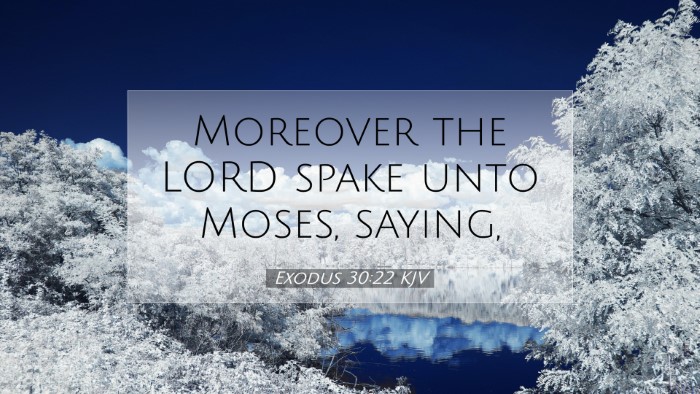Commentary on Exodus 30:22
Exodus 30:22 states:
"Moreover the LORD spake unto Moses, saying,"
Introduction
This verse marks a transitioning point in the instructions given to Moses regarding the tabernacle and its associated rituals. This commentary synthesizes insights from notable public domain commentaries, focusing on the significance of the anointing oil, the context of divine instructions, and their implications for worship and ministry.
Divine Instruction and Authority
At the outset, God speaks directly to Moses, reflecting His unique and authoritative voice in the covenant relationship with Israel. This is reminiscent of the calls to prophets throughout Scripture, emphasizing the importance of revelation in guiding God’s people.
Matthew Henry's Perspective
Matthew Henry emphasizes that the direct communication with Moses underscores the significance of the covenant. God’s instructions regarding the anointing oil serve a dual purpose: appointing those who will lead in sacred duties and setting apart items for holy use. This communication signifies God's active role in guiding worship and instilling a sense of holiness.
Albert Barnes' Insights
Albert Barnes argues that in this verse, God establishes the protocol for anointing, which symbolizes divine selection and empowerment. The anointing oil is not merely for ceremonial purposes; it represents the presence of the Holy Spirit. Through this sacred act, leaders and objects are consecrated, indicating that their function is sacred and derived from divine authority.
The Significance of the Anointing Oil
In Exodus 30:22 and the following verses, we dive deeper into the composition and application of the anointing oil, which has extensive theological implications.
Spiritual Representation
The anointing oil in the biblical context represents the Holy Spirit's presence and power. Just as the oil is used to consecrate priests, kings, and sacred items, the Holy Spirit empowers believers for service and ministry today. This symbolism is profound, illustrating that just as physical objects in the Old Testament were set apart for God’s purposes, so too are believers transformed and devoted to His work.
Adam Clarke's Observations
Adam Clarke points out that the anointing oil was specifically designed for God’s distinct offices. He elaborates that the specific instructions concerning its preparation signify that worship and governance must adhere to God's standards and not human innovation. Through anointing, leaders are equipped with divine wisdom, which highlights the seriousness of spiritual authority and accountability.
Contextualizing the Instructions
To fully grasp the importance of this verse, one must examine the surrounding context of Exodus 30. These commandments are framed within the broader narrative of the Israelite experience, emphasizing a covenant community striving for holiness.
Call to Holiness
The detailed instructions regarding the anointing oil serve as a reminder of the holiness required of God’s people. As they engage in worship and service, they are to reflect the nature of their God—holy, just, and empowered. This call to holiness remains relevant today, as the church is called to be a set-apart community, living in accordance with God's standards.
Pastoral Applications
From a pastoral perspective, this passage implores leaders to seek divine guidance in their roles. The necessity of prayer and reliance on the Holy Spirit for empowerment is evident. Pastors are reminded that their leadership is not merely organizational but requires spiritual fortitude underscored by God’s anointing.
Consequences of Disobedience
When analyzing the instructions regarding the anointing oil, it’s crucial to consider the consequences laid out for disobedience. In Exodus 30:33, God warns against the misuse of the holy oil, which sets a standard for respecting the sacred. This principle speaks to the gravity of handling spiritual matters inappropriately.
Implications for Modern Believers
Today, the call for the church is to uphold the reverence of God in worship and community life. The degradation of sacred practices leads to a diminished understanding of God's holiness and the necessity of genuine anointing in ministry.
Conclusion
Exodus 30:22 serves not only as a historical record but as a profound reminder of our need for God’s direct guidance, the essential nature of holiness in worship, and the importance of divine anointing in leadership. The insights drawn from public domain commentaries by Matthew Henry, Albert Barnes, and Adam Clarke emphasize that as we engage in ministry, we must continually seek God’s presence, adhere to His instructions, and honor the sacredness of our calling. Today, may we strive to be filled with the Spirit as we fulfill our roles within the body of Christ.


